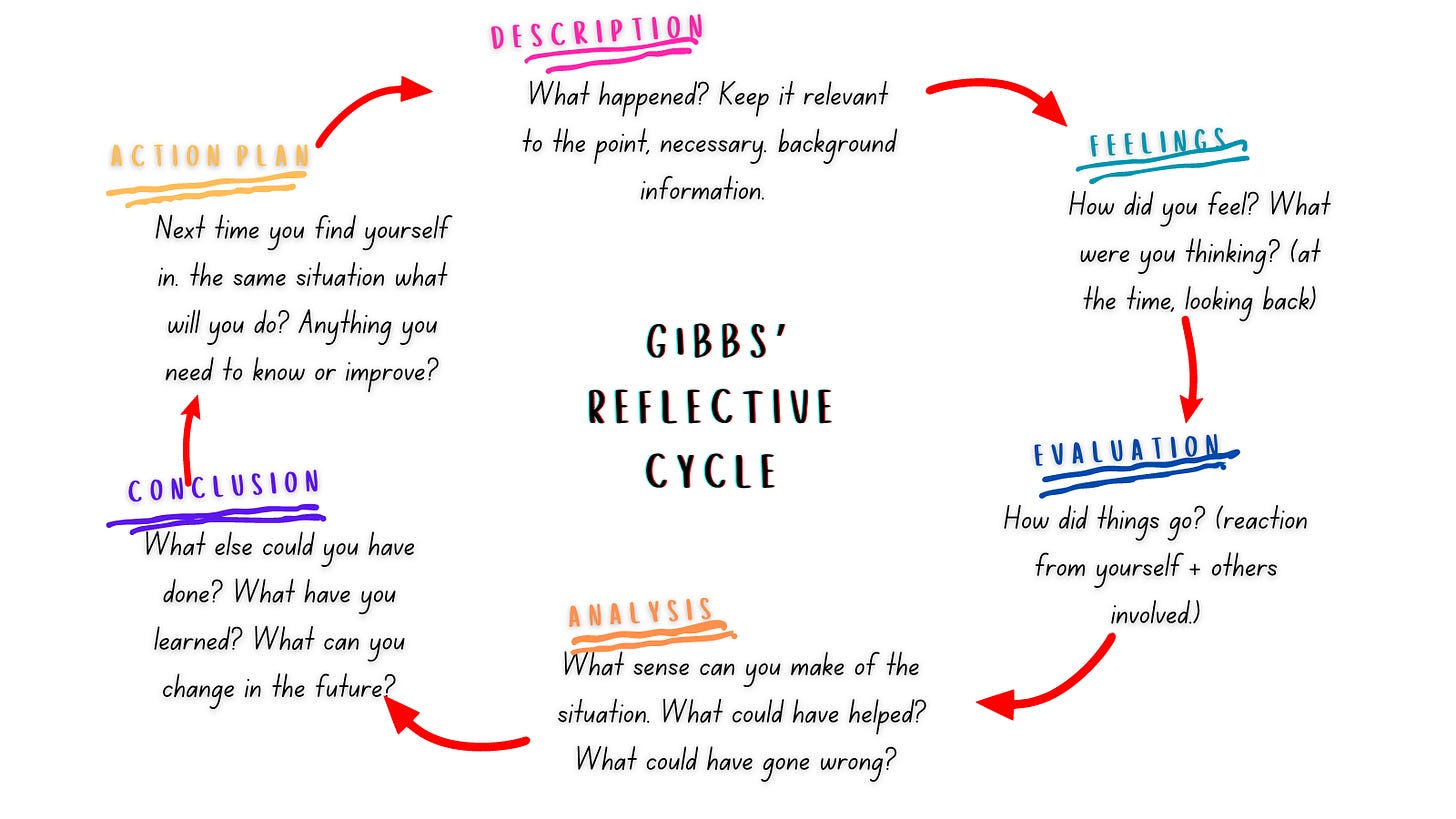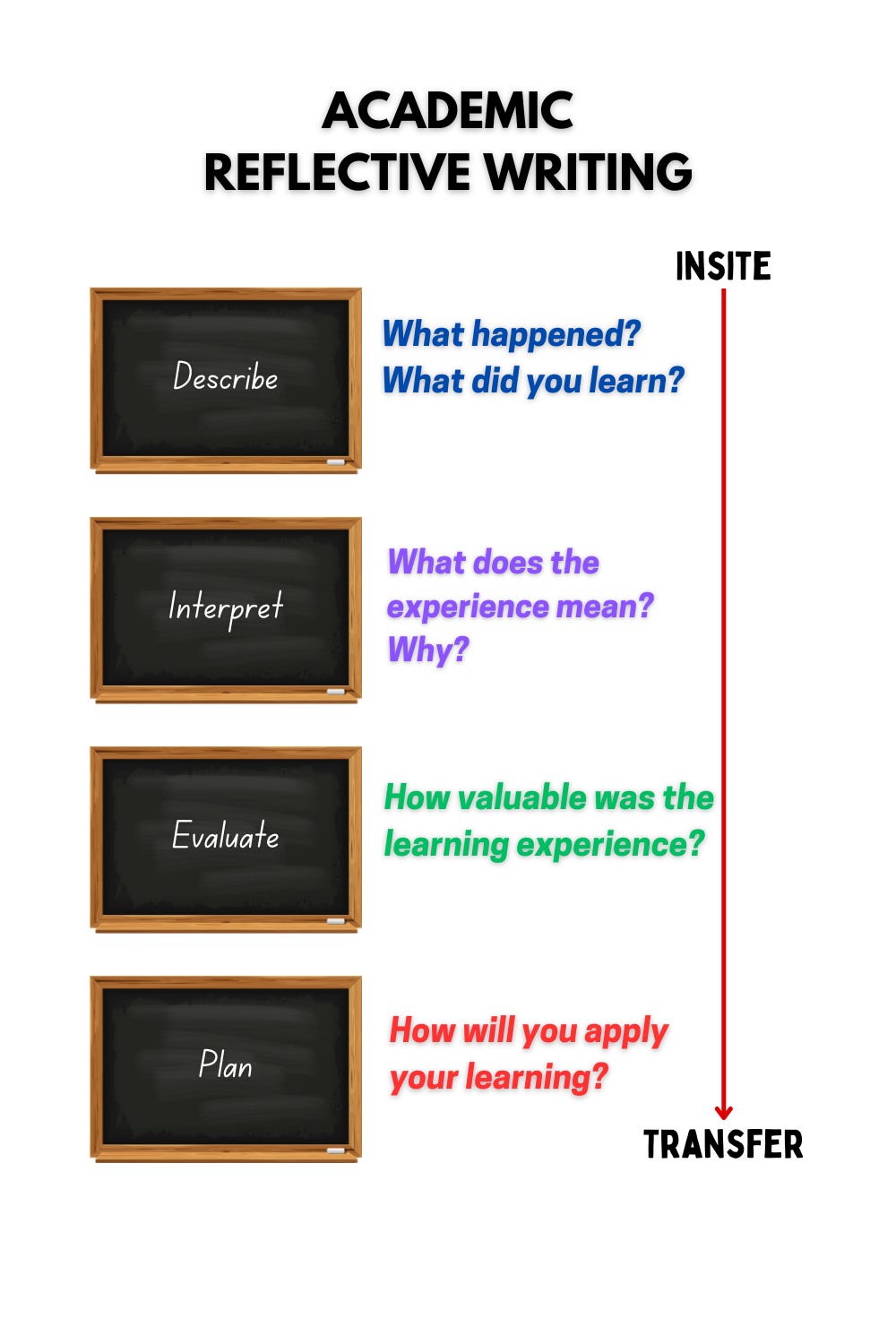Mastering Level 6 Writing: Essential Tips for Student Nurses on Critical Reflective Writing
A guide for effective nursing reflection techniques and strategies to help you succeed in your studies and future nursing career.
Mastering level 6 writing is a crucial skill for student nurses, as it plays a significant role in their journey to becoming proficient nurses. This skill enables them to analyse and reflect on their experiences in clinical settings, fostering self-awareness and growth.
Understanding Level 6 Writing
Key Elements of Level 6 Writing
Level 6 writing requires analytical skills, critical thinking, and a deep understanding of nursing concepts. For student nurses, focusing on more than just describing and reflecting on experiences is crucial. This involves identifying critical events in clinical practice and evaluating their impact on patient care. Additionally, level 6 writing emphasizes the integration of theory with practice. Students should connect their observations with relevant nursing theories for a more comprehensive analysis. Clarity and coherence in writing ensure that your reflections follow a logical structure. Moreover, always support your reflections with evidence, referencing literature or guidelines. By honing these elements, student nurses can enhance their critical reflective writing, ultimately contributing to their professional development and reflective practice in nursing.
Importance of Critical Reflective Writing
Critical reflective writing is essential to nursing education, especially at level 6, as it connects theoretical knowledge with practical application. For student nurses, engaging in reflective practice helps them gain a deeper understanding of clinical experiences, increases self-awareness, and highlights areas for improvement. Nurses can assess their actions and decisions through critical reflection, improving patient care and professional development. This type of writing also promotes lifelong learning by encouraging continuous reflection and self-assessment. It equips nurses to adapt to new challenges and integrate new knowledge into their practice. Therefore, developing critical, solid, reflective writing skills is crucial for any nurse who wants to excel in their field and provide the best possible care to their patients.
Techniques for Reflective Practice
Effective Nursing Reflection Methods
Developing effective nursing reflection techniques is vital for student nurses who aim to improve critical reflective writing. One popular approach is Gibbs' Reflective Cycle, which guides users through six stages: description, feelings, evaluation, analysis, conclusion, and action plan. This structured method helps nurses thoroughly reflect on their experiences.
Another technique is using reflective journals, where nurses regularly document their clinical experiences and insights. Writing consistently encourages deeper reflection and fosters growth over time.
Additionally, peer discussions can provide new perspectives, enriching the reflective process. It's also beneficial to set aside dedicated time for reflection, allowing for uninterrupted thought and analysis. By incorporating these techniques, student nurses can improve their ability to assess their practice critically, enhancing patient care and professional development within the nursing field.
Enhancing Student Nurse Writing Skills
Improving student nurses' writing skills is crucial for excelling in level 6 writing and reflective practice in nursing. Regular practice helps in expressing thoughts clearly and reading various nursing literature can expand vocabulary and enhance understanding of professional terminology. Seeking feedback from mentors and peers is essential for significant growth. Constructive criticism can pinpoint areas for improvement and offer new insights. Utilizing writing aids like grammar checkers and citation tools ensures polished and academically sound work.
In addition, breaking down writing into manageable tasks can prevent feeling overwhelmed. Creating an outline before writing helps maintain a logical flow and ensures all critical points are covered. Student nurses can significantly enhance their writing skills using these strategies, leading to more effective and insightful critical reflective writing.
Tips for Successful Reflective Writing
Common Pitfalls to Avoid
Reflective writing can be challenging for student nurses, and it's essential to be aware of common pitfalls to avoid. One major mistake is focusing too much on description without adequate analysis. While describing experiences is necessary, the real value lies in reflecting on what you learned and how it impacts your practice. Another pitfall is that you need to pay attention to tying reflections back to relevant nursing theories or literature, which can weaken your analysis. Avoid being overly critical or too lenient with yourself; aim for a balanced reflection that acknowledges both strengths and areas for improvement. Also, steer clear of vague language. Use specific examples to support your reflections, making your writing more credible and insightful. Finally, don't rush the reflective process. Take the time to think deeply about your experiences and what they mean for your future nursing practice. By avoiding these common pitfalls, you can enhance the quality of your critical, reflective writing.
Practical Strategies for Improvement
Improving your critical reflective writing involves adopting practical strategies that enhance your writing process and the quality of your content. First, set aside regular time for reflection, allowing you to process your experiences without distractions. You can use structured frameworks like Gibbs' Reflective Cycle or the DIEP (Describe, Interpret, Evaluate, Plan) model to guide your reflections. These frameworks help ensure a comprehensive and balanced analysis. Seeking feedback from peers or mentors can provide valuable insights and highlight areas for improvement.
In addition, it's beneficial to read exemplary reflective essays to understand what high-quality reflective writing looks like. You can then incorporate their techniques into your writing. Another helpful strategy is to keep a reflective journal, jotting down thoughts and experiences as they happen. This practice can make it easier to recall details when writing formal reflections. Finally, don't hesitate to revise and edit your work. Multiple drafts often lead to more transparent and coherent reflections. By integrating these strategies, student nurses can significantly enhance their reflective writing skills.





